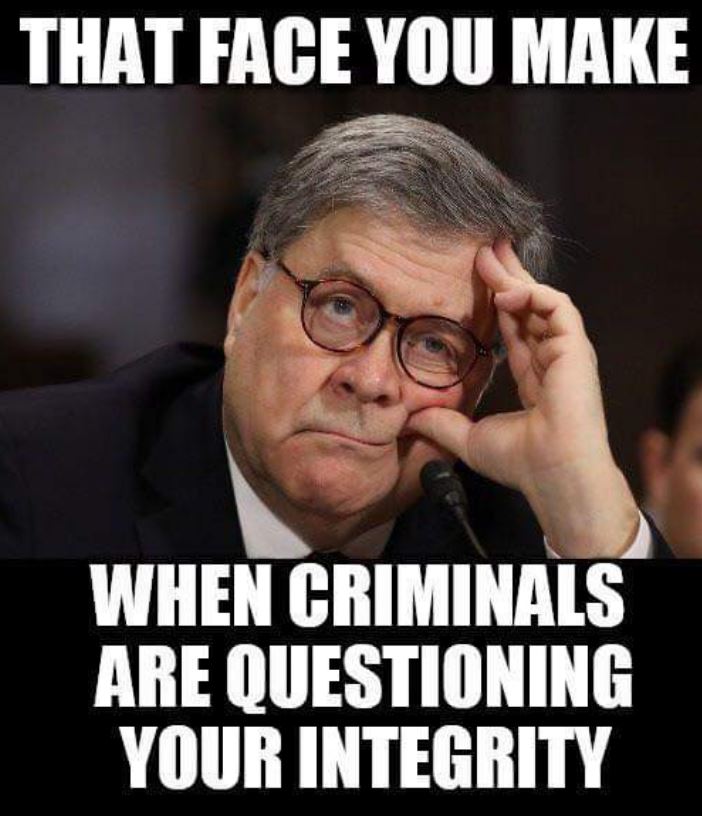 I can hear them. Can’t you?
I can hear them. Can’t you?
I’ll wager there are any number of persons in DC, Brandywine, Alexandria, Silver Spring, Bethesda, Falls Church, Reston, Rockville, College Park, Great Falls, McLean, Chevy Chase, North Arlington and Georgetown — amongst many, many other locales –whose personal radar has emerged and is sounding bells and klaxons in a fashion heretofore never experienced.
I can hear them. And I think they can too: footsteps.
Furthermore, the smell of fear — sweaty, clammy, dripping rivulets of fear coursing down the small of a back, staining the armpits, moistening the crotch, invading the breath, gathering on a forehead — is becoming endemic in the northeast. It’s a sour smell, cloying, inescapable, permeating the offices of many bureaucrats in DC, male and female. It’s the abject smell of fear. And it’s also the smell of emptying bowels and a mad rush to cover up and bury evidence.
Who knows? Who knows what? And who could potentially or will likely “roll” on others in order to save themselves? Who will cut a deal? More importantly: who will cut a deal first?
Yes, it’s the “beginning of the end.” But for whom?
Nothing but lies from the media. In the end, they all look like fools. pic.twitter.com/s1VF8gXoJC
— ????????????????????™️ (@RealMAGASteve) April 19, 2019
Attorney General William Barr is now the most dangerous man in the United States of America.
Listen to how they must denigrate him. Listen to how they must minimize him. Listen to how they must utilize every device, word, phrase, pejorative, in order to derail his future work and to absolutely destroy his credibility and destroy him as a human being.
Because here is what an actual Attorney General of the United States sounds like:
- “I’m not going to discuss my decision, I will lay it out after the report is out.”
- “I’m not going to characterize or discuss the contents of the report.”
This is Demorat Senator Chris Van Hollen of Maryland trying to get information out of AG Barr prior to the release of the report a few weeks ago. This is called sticking to your guns.
The Leftists, Demorats and American Media Maggots clearly recognize that AG William Barr is a DC veteran and doesn’t buy very many political narratives. He’s seen most everything and seems to be afraid of little. He appears to be primarily interested in the law, and said this three weeks ago:
And there is more that he said in the Senate Judiciary Committee:
This was sufficient to raise Demorat hackles and cause immediate concern, as in “Is this guy not going to play along?”
Three weeks ago, AG Barr caused sphincters all across DC to either slam shut or empty their watery contents when he related the following:
“I think spying on a political campaign is a big deal.”
“I think spying did occur.”
The words that loosened thousands of sets of bowels in the northeast.
And with that, the gloves were off. William Barr had to be destroyed by any means necessary or available. It was clear that he was no limp-wristed, wimpy-voiced, diaper-wearing Jeff Sessions — but an actual adult who could think for himself and recognized his duties and responsibilities as Attorney General of the United States.
He also knows what he will and will not do. And what is lawfully obligated to do or not do. AG William Barr is essentially setting behavior parameters for the children.
A single word: “No.” Then: “Why should you have them?”
Hence these unfettered, unreasonable and baseless attacks. Leftists, Demorats and the American Media Maggots know precisely what William Barr will do or is already doing. He is going to walk backwards in time to determine how the FISA warrant was acquired,
Lindsay Graham nails the primary issue here on the Sean Hannity Show. As an aside, it’s interesting how it’s the third time I’ve had to find this video you YouTube, their having shut down and eliminated two other prior videos.
What was so terrible about this video according to YouTube?
A truth too close to the bone?
Perhaps the LDAMM — Leftists, Demorats and American Media Maggots think that, instead of “I think spying on a political campaign is a big deal,” they believe Attorney General William Barr said “cry havoc, and let slip the dogs of war!”
Because: make no mistake, this is war. Leftists and Demorats are fighting to ensure that the entire 44th presidency doesn’t explode into the face of Barack Hussein Obama and, moreover, that those persons operating the pedals and levers — such as Hillary Clinton, Peter Strzok, Lisa Page, Bruce and Nellie Ohn, John Brennan, James Clapper, James Comey, Andrew McCabe, and many, many others — aren’t themselves placed under indictment, arrest and perhaps even sentencing in a federal facility.
Because I firmly believe now as two years ago when I made this statement, that what we are seeing is a soft coup — simply not an active utilization of the US military might — against a citizen of the United States. It was a soft coup against a presidential nominee, a president-elect, and then a sitting President of the United States.
The heat is on. The persons I enumerated are hearing footsteps and the stench of fear is thick. Here are a number of revelations recently discovered involving the FBI, CIA and many other individuals in the systemic focus on removing Donald Trump by any means necessary, legal or illegal.
First, isn’t it interesting that this occurs. To me, call me wacky, the timing seems a bit suspicious:
NSA recommends dropping controversial mass surveillance program, report says
by Christopher Carbone
The National Security Agency has reportedly recommended that the White House abandon a controversial surveillance program that collects vast amounts of information about Americans’ phone calls and text messages, claiming the legal and logistical burdens of maintaining it outweigh its benefits to the intelligence community.
The recommendation, which was first reported by The Wall Street Journal and involved input from NSA, the FBI and the Department of Justice, appears to represent an about-face regarding a program – long criticized by privacy advocates – that federal officials previously said was vital to finding and disrupting terrorist plots against the United States.
The once-secret program known as Stellarwind, which was revealed by NSA whistleblower Edward Snowden and has been seen as not viable for some time now, is now seen as something that provides limited intelligence to the U.S., according to the Journal.
This emerged April 18th from the WashingtonFreeBeacon.com:
U.S. Intelligence Institutionally Politicized Toward Democrats
Former CIA analyst says agencies dominated by liberals
by Bill Gertz
The CIA and other U.S. intelligence agencies have become bastions of political liberals and the pro-Democratic Party views of intelligence personnel have increased under President Donald Trump, according to a journal article by a former CIA analyst.
John Gentry, who spent 12 years as a CIA analyst, criticized former senior intelligence leaders, including CIA Director John Brenan, Director of National Intelligence James Clapper, and former deputy CIA director Michael Morell, along with former analyst Paul Pillar, for breaking decades-long prohibitions of publicly airing their liberal political views in attacking Trump.
The institutional bias outlined in a lengthy article in the quarterly International Journal of Intelligence and Counterintelligence risks undermining the role of intelligence in support of government leaders charged with making policy decisions.
Gentry stopped short of saying the widespread liberal bias of intelligence officials has influenced intelligence reports and products. However, he concludes that “bias may have crept into CIA analyses.”
Facts in evidence. Didn’t we all already inherently intuit this?
But wait; wasn’t it the Leftists, Demorats and American Media Maggots — to include Jimmy “The Leak” Comey, John Brennan and James Clapper — who absolutely insisted that the alphabet agencies were entirely apolitical and unbiased?
We discovered this, from TheFederalist.com:
Obama’s Campaign Paid $972,000 To Law Firm That Secretly Paid Fusion GPS In 2016
by Sean Davis
Since April of 2016, Obama’s campaign organization has paid nearly a million dollars to the law firm that funneled money to Fusion GPS to compile a dossier of unverified allegations against Donald Trump.
Former president Barack Obama’s official campaign organization has directed nearly a million dollars to the same law firm that funneled money to Fusion GPS, the firm behind the infamous Steele dossier. Since April of 2016, Obama For America (OFA) has paid over $972,000 to Perkins Coie, records filed with the Federal Election Commission (FEC) show.
The Washington Post reported last week that Perkins Coie, an international law firm, was directed by both the Democratic National Committee (DNC) and Hillary Clinton’s campaign to retain Fusion GPS in April of 2016 to dig up dirt on then-candidate Donald Trump. Fusion GPS then hired Christopher Steele, a former British spy, to compile a dossier of allegations that Trump and his campaign actively colluded with the Russian government during the 2016 election. Though many of the claims in the dossier have been directly refuted, none of the dossier’s allegations of collusion have been independently verified. Lawyers for Steele admitted in court filings last April that his work was not verified and was never meant to be made public.
We also discovered a line of email evidence leading directly into the Oval Office of Barack Hussein Obama:
FBI found Hillary Clinton’s emails in Obama White House, former top official says
by Daniel Chaitin, 4-23-19
A former top FBI official said a repository of Hillary Clinton’s emails was obtained by the Obama White House.
As part of a court-ordered discovery related to Clinton’s unauthorized email server, Bill Priestap was asked by conservative watchdog group Judicial Watch to identify representatives of Clinton, her State Department staff, and government agencies from which “email repositories were obtained” by the FBI.
He divulged a nonexhaustive list, which included the Executive Office of the President.
Stop. Do you doubt for even a microsecond that Barack Obama had no idea what was being done to Trump and his campaign by a host of persons and the alphabet agencies? Can you really believe Obama was and is that ignorant of politics?
Other people mentioned were former Clinton aides Cheryl Mills, Heather Samuelson, Jacob Sullivan, and Justin Cooper, former Clinton information technology staffer Bryan Pagliano, the State Department, Secret Service, and Washington-based law firm Williams and Connolly.
Priestep answered questions in writing and under oath as part of U.S. District Judge Royce Lamberth’s ruling earlier this year that discovery could commence examining the former secretary of state’s use of the server, encompassing Obama administration senior State Department officials, lawyers, and Clinton aides, as well as Priestap.
Even more important:
Judicial Watch shared Priestep’s recent testimony on Tuesday, at a time when Republican allies of President Trump, as well as the Justice Department and its inspector general, are looking into possible misconduct by top DOJ and FBI officials stemming back to the Obama administration to undermine Trump as a candidate and president.
“This astonishing confirmation, made under oath by the FBI, shows that the Obama FBI had to go to President Obama’s White House office to find emails that Hillary Clinton tried to destroy or hide from the American people,” Judicial Watch President Tom Fitton said in a statement. “No wonder Hillary Clinton has thus far skated — Barack Obama is implicated in her email scheme.”
B I N G O .
We also know this, from the WashingtonExaminer.com:
DOJ inspector general ‘homing in on’ FBI’s use of unverified Steele dossier
by Jerry Dunleavy, 5-8-19
Justice Department Inspector General Michael Horowitz is investigating the FBI’s reliance on the unverified dossier produced by British ex-spy Christopher Steele in the surveillance of a Trump campaign associate “despite questions about [Steele’s] credibility.”
Citing unnamed sources, the Wall Street Journal reports Horowitz “is homing in on” and “has been asking witnesses about” the FBI’s “treatment of information” provided by Steele, described as a “key source”, who was used to obtain Foreign Intelligence Surveillance Act warrants against former Trump foreign policy adviser Carter Page.
This is part of Horowitz’s broad investigation into alleged FISA abuse and more.
Drops of sweat. Footsteps. More underarm deodorant required.
Steele’s dossier was funded in part by the Democratic National Committee and Hillary Clinton’s 2016 campaign through the Perkins Coie law firm and opposition research group Fusion GPS, which had reached out to and contracted Steele.
The new Wall Street Journal report says the inspector general’s office “has been asking why the FBI continued to cite Steele as a credible source in the renewal applications.” And a specific focus of Horowitz’s team is apparently “a news report cited extensively in the [FISA] applications that appeared to bolster Steele’s credibility… [which] said U.S. intelligence officials were investigating allegations similar to those Steele had raised.”
As you already know. See above. You clearly wouldn’t want to any of Jimmy “The Leak” Comey’s shirts these days.
James Comey is in trouble and he knows it
by Kevin R. Brock, 5-7-19
James Comey’s planet is getting noticeably warmer. Attorney General William Barr’s emissions are the suspected cause.
Barr has made plain that he intends to examine carefully how and why Comey, as FBI director, decided that the bureau should investigate two presidential campaigns and if, in so doing, any rules or laws were broken.
In light of this, the fired former FBI director apparently has decided that photos of him on Twitter standing amid tall trees and in the middle of empty country roads, acting all metaphysical, is no longer a sufficient strategy.
No, Comey has realized, probably too late, that he has to try to counter, more directly, the narrative being set by the unsparing attorney general whose words in front of the Senate Judiciary Committee last week landed in the Trump-opposition world like holy water on Linda Blair. Shrieking heads haven’t stopped spinning since.
And so we’ve seen Comey get real busy lately. First he penned a curious op-ed in The New York Times. Then a Times reporter, with whom Comey has cooperated in the past, wrote a news article exposing an early, controversial investigative technique against the Trump campaign in an attempt to get out front and excuse it. Next, Comey is scheduled to be encouraged on a friendly cable news “town hall.”
In the op-ed, Comey trotted out his now-familiar St. James schtick, freely pronouncing on the morality of others. He sees himself as a kind of Pontiff-of-the-Potomac working his beads, but comes across more like an unraveling Captain Queeg working his ball bearings.
Jimmy “The Leak” hears footsteps. James Clapper hears footsteps, from TheFederalist.com:
James Clapper Knew There Was No Evidence of Trump-Russia Collusion In 2016
by H.A. Goodman, 4-24-19
President Obama’s top intelligence official stated categorically that no evidence existed of Trump-Russia collusion. So why did Rosenstein appoint Mueller two months later?
Long before the special counsel probe ended in confirming there was no collusion between President Trump and Russia, the U.S. government knew there was no evidence of a vast conspiracy between Trump and a foreign power.
Deputy Attorney General Rod Rosenstein announced the appointment of Special Counsel Robert Mueller to investigate “ties between President Trump’s campaign and Russian officials” on May 17, 2017. President Obama’s director of national intelligence James Clapper had access and was privy to all the “evidence” the U.S. government collected since the Russia investigation began in July 2016.


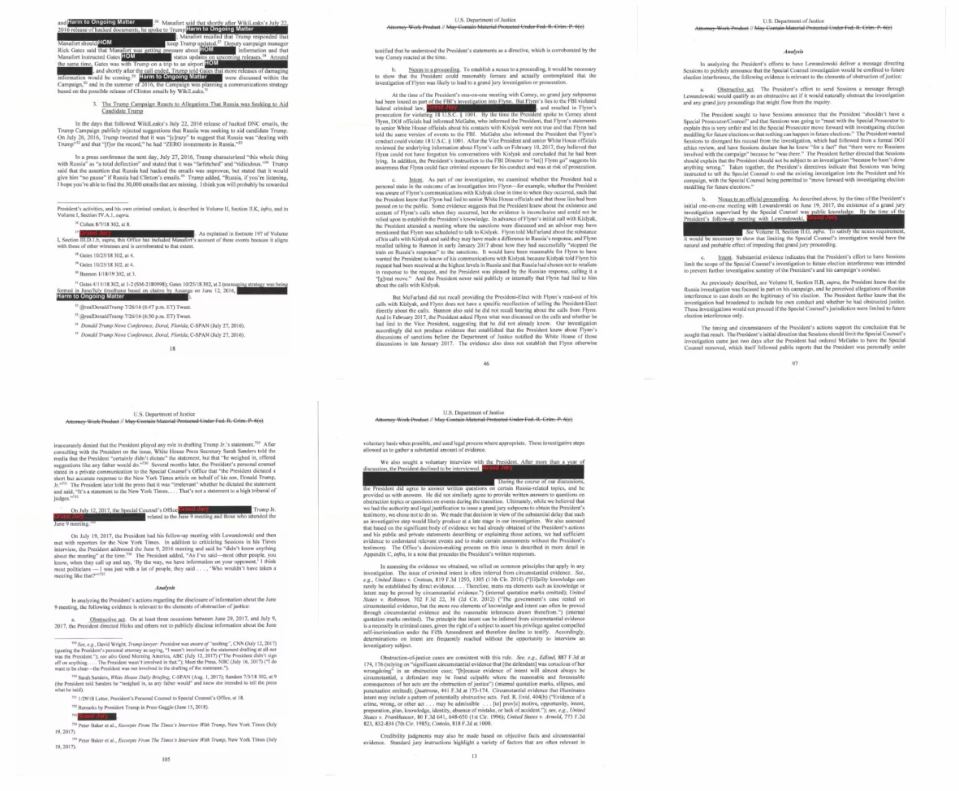 And there are two very important reasons why conditions were placed.
And there are two very important reasons why conditions were placed.
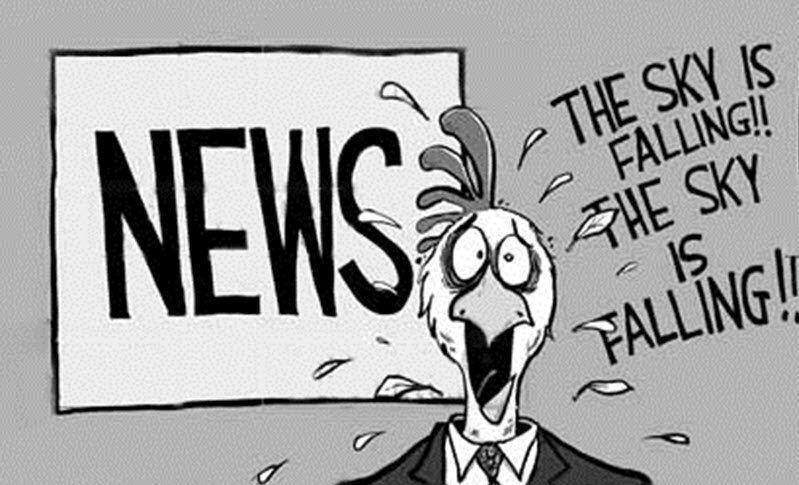 If you’d been listening to the American Media Maggots the past 24 hours, you’d think the sky had indeed fallen all across the United States of America.
If you’d been listening to the American Media Maggots the past 24 hours, you’d think the sky had indeed fallen all across the United States of America.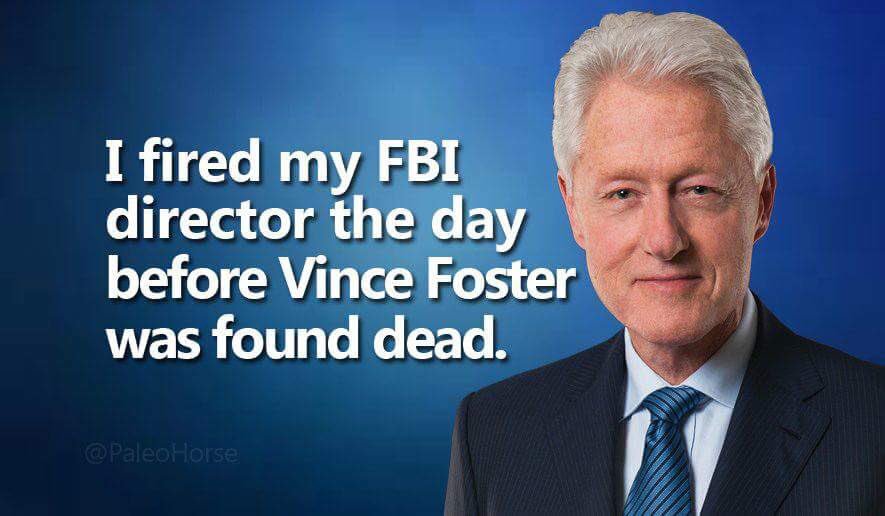 Many Demorats themselves were calling for the severed head of William Comey quite recently.
Many Demorats themselves were calling for the severed head of William Comey quite recently.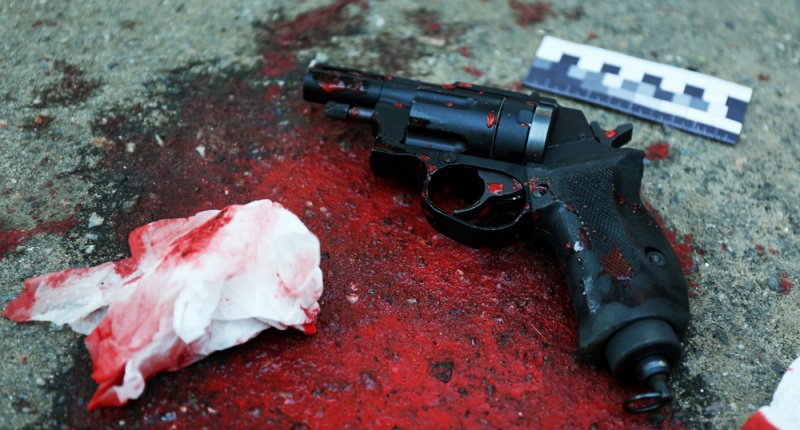 And Rahm Emanuel gets paid no matter who gets killed.
And Rahm Emanuel gets paid no matter who gets killed.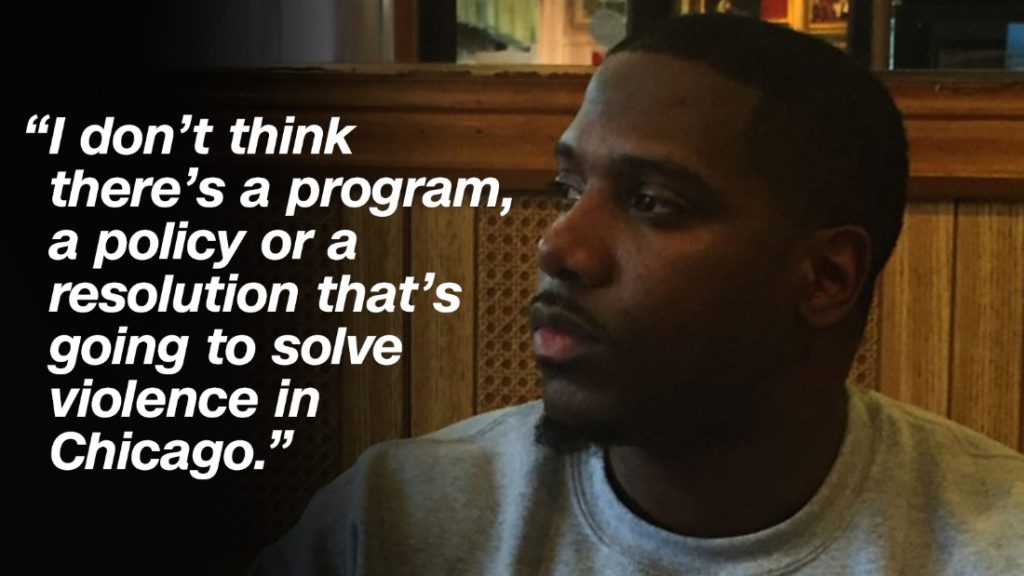 From the
From the